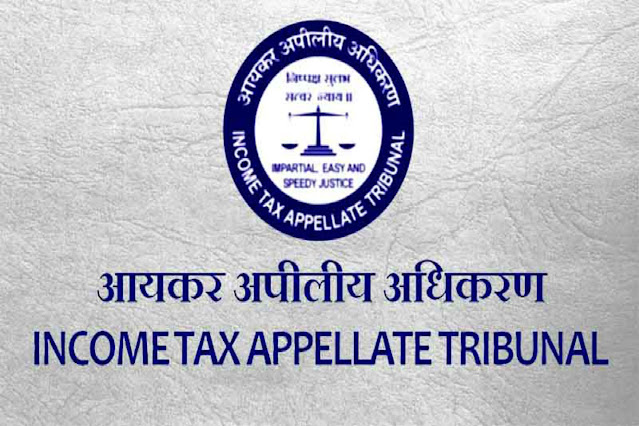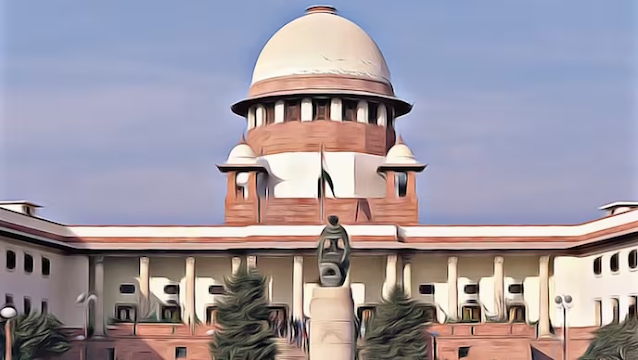M. W. Chandwani, J
1. Heard.
2. Rule. Rule made returnable forthwith. Heard finally by consent of the parties.
3. By this application, the applicants invokes the extra-ordinary jurisdiction of the Court under Section 482 of the Code of Criminal Procedure
(Cr.P.C.) for quashing the First Information Report (FIR) No. 429/2019 registered at Police Station, Nandanwan, Nagpur for the offences punishable
under Sections 306 and 506 read with Section 34 of the Indian Penal Code (IPC).
4. The facts, which lead to filing of the present application are stated thus:
Gopal Rampal Verma had committed suicide on 08.02.2019 and on the same day a case of accidental death came to be registered under Section 174
of the Cr.P.C. After more than three months, i.e. on 25.05.2019, uncle of the deceased lodged a report with Police Station, Nandanwan alleging that
the deceased was having love affair with Ishika, which was not liked by her family members, therefore, family members of Ishika were looking for a
suitable groom for her. On 08.02.2019, at about 10 a.m., the deceased was called at house of Ishika. The applicants who are maternal uncle, maternal
aunt and sister of Ishika, respectively, threatened the deceased not to meet Ishika, otherwise they will rope him in false case. The applicants made
Ishika tie ‘Rakhi’ on the hand of the deceased. Due to threatening by the applicants, the deceased committed suicide by hanging, leaving behind
a suicide-note blaming the applicants responsible for his death. On these allegations, the aforesaid offences came to be registered against the
applicants.
5. It is submitted on behalf of the learned counsel for the applicants that there is delay in lodging the FIR by the uncle of the deceased and they
themselves were knowing that the applicants have not committed any offence. Merely, on the allegations of false implication in the offence, without
there being any positive action on the part of the applicants, it cannot be said that they have abetted the commission of the offence and there is no act
on the part of the applicants either of the instigation, conspiracy or aiding and therefore, there is no prima facie case against the applicants. According
to learned counsel for the applicants, the registration of the present crime against the applicants itself is an abuse of process of law therefore, needs to
be quashed.
6. Learned APP appearing on behalf of non-applicant no. 1 submits that the offence was registered against the applicants under Section 306 of the
IPC on the basis of information given by the uncle of the deceased and the deceased also left a suicide-note blaming the present applicants responsible
for his death and there were positive acts on the part of the applicants. Therefore, the application needs to be dismissed.
7. We have perused the FIR lodged, which reveals that the deceased had left behind a suicide-note blaming the applicants as responsible for his death.
It is alleged in the FIR that the applicants asked deceased not to meet Ishika, otherwise they will framed him in false case. The applicants got
‘Rakhi’ tied on the hand of deceased by Ishika. According to prosecution due to these harassment, the deceased committed suicide.
8. For attracting Section 306 of the IPC, the prosecution has to show that there is abetment and pursuant to the said abetment, the deceased has
committed suicide. The abetment is defined under Section 107 of the IPC. It will be apt to refer to Section 107 of the IPC, which reads as under:
107. Abetment of a thing.- A person abets the doing of a thing, who-
First.â€"Instigates any person to do that thing; or
Secondly.â€"Engages with one or more other person or persons in any conspiracy for the doing of that thing, if an act or illegal omission takes place in
pursuance of that conspiracy, and in order to the doing of that thing; or
Thirdly.â€"Intentionally aids, by any act or illegal omission, the doing of that thing.
Explanation 1.-A person who, by wilful misrepresentation, or by wilful concealment of a material fact which he is bound to disclose, voluntarily causes
or procures, or attempts to cause or procure, a thing to be done, is said to instigate the doing of that thing.
Explanation 2.-Whoever, either prior to or at the time of the commission of an act, does anything in order to facilitate the commission of that act, and
thereby facilitates the commission thereof, is said to aid the doing of that act.
9. The law with regard to abetment, as contemplated under Section 306 of the IPC, is no longer res integra. The Apex Court in various cases has
elucidated the essential ingredient for attracting the abetment of suicide as contemplated under Section 306 of the IPC.
10. In case of Ramesh Kumar Vs. State of Chattisgarh [(2001) 9 SCC 618], the Apex Court in para no. 20 has held as under:
“20. Instigation is to goad, urge forward, provoke, incite or encourage to do “an actâ€. To satisfy the requirement of instigation though it is not
necessary that actual words must be used to that effect or what constitutes instigation must necessarily and specifically be suggestive of the
consequence. Yet a reasonable certainty to incite the consequence must be capable of being spelt out. The present one is not a case where the
accused had by his acts or omission or by a continued course of conduct created such circumstances that the deceased was left with no other option
except to commit suicide in which case an instigation may have been inferred. A word uttered in the fit of anger or emotion without intending the
consequences to actually follow cannot be said to be instigation.â€
11. In the case of [(2010) 12 SCC 190], the under :
S. S. Cheena Vs. Vijay Kumar Mahajan Apex Court in para no. 28 has held as
“28. Abetment involves a mental process of instigating a person or intentionally aiding a person in doing of a thing. Without a positive act on the
part of the accused to instigate or aid in committing suicide, conviction cannot be sustained. The intention of the legislature and the ratio of the cases
decided by this Court is clear that in order to convict a person under Section 306 IPC there has to be a clear mens rea to commit the offence. It also
requires an active act or direct act which led the deceased to commit suicide seeing no option and that act must have been intended to push the
deceased into such a position that he committed suicide.â€
12. In the case of Madan Mohan Singh Vs. State of Gujrat [2010 (8) SCC 628], the Apex Court in para no. 12 has held as under:
12. In order to bring out an offence under Section 306 IPC specific abetment as contemplated by Section 107 IPC on the part of the accused with an
intention to bring about the suicide of the person concerned as a result of that abetment is required. The intention of the accused to aid or to instigate
or to abet the deceased to commit suicide is a must for this particular offence under Section 306 IPC. We are of the clear opinion that there is no
question of there being any material for offence under Section 306 IPC either in the FIR or in the so-called suicide note.
13. In view of the aforesaid legal position, it is crystallized that for abetment of a thing requires instigation or conspiracy by engaging with other person
or intention to aid on behalf of accused. As held by their Lordships in the aforesaid cases, for attracting Section 306 of the IPC, specific abetment on
the part of the accused with an intention to bring about suicide of the person concerned as a result of that abetment is required. There must be
allegation that the accused had instigated deceased to commit suicide or engaged himself with some other person in a conspiracy or the accused had
intentionally aided to bring out the suicide.
14. In the present case, by no stretch of imagination the applicants by threatening or by getting ‘Rakhi’ tied on the hand of deceased through
Ishika, left the deceased with no option and intended to push the deceased into such position that he committed suicide. Ishika and the deceased were
major. The deceased could have taken legal recourse by lodging complaint to redress his issue. It appears that the deceased was hyper sensitive
person, who got hurt and committed such an act which led to his death.
15. Though, in the present case, the entire happening depicts an unhappy state of affairs, we do not find from either the allegations in the FIR or from
the suicide-note that the applicants have abetted the deceased to commit suicide. Prima facie, on the face value of the FIR and the suicide-note, if
taken as they are, would not amount to abetment as defined under Section 107 of the IPC.
16. The law has been settled by catena of the judgments of the Hon’ble Apex Court way back in 1992 in the case of State of Haryana Vs.
Bhajan Lal [1992 SCC (Cri) 426] that where the allegations made in the FIR, even if they are taken at their face value and accepted in entirely, did
not constitute an offence and make out a case against the accused, the Court in its inherent powers under Section 482 of the Cr.P.C. shall exercise
powers for quashing the FIR or proceedings against the accused. The same principle were reiterated later in the case of State of Andhra Pradesh Vs.
Golconda Lingaswami [2004 SCC (Cri) 1805] and Zandu Pharmaceutical Works Ltd. Vs. Mohd. Sharaful Haaqe [(2005) 1 SCC 122].
17. Since, the FIR registered against the applicants for the offence punishable under Section 306 read with Section 34 of the IPC is an abuse of
process of law hence, it is liable to be quashed and set aside. With regard to offence punishable under Section 506 of the IPC, it appears from
allegation of threatening that the first part of Section 506 of the IPC attracts, which is non-cognizable one. No investigation is permitted by a Police
Officer without an order of a Magistrate under Section 155(2) of the Cr.P.C.
18. For the reasons aforestated, the Criminal Application is allowed. Crime No. 429/2019 registered with Police Station Nandanwan, Nagpur for the
offences punishable under Section 306 and 506 read with Section 34 of the IPC is quashed and set aside.
19. Pending application, if any, stands disposed of accordingly.

